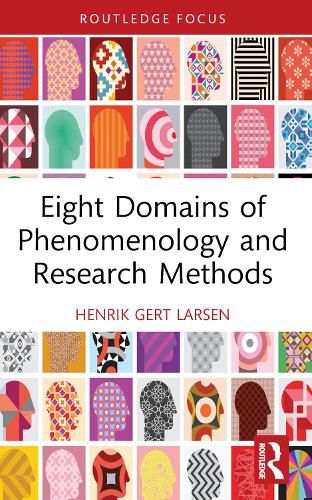Readings Newsletter
Become a Readings Member to make your shopping experience even easier.
Sign in or sign up for free!
You’re not far away from qualifying for FREE standard shipping within Australia
You’ve qualified for FREE standard shipping within Australia
The cart is loading…






Eight Domains of Phenomenology and Research Methods is a unique text that explains how the foundational literature representing our lifeworld experience aligns theory with research methods.
Maintaining focus on the core problem of phenomenological investigations, the author strives to bridge theory with applied research by critically reviewing examples from the applied literature. With the extensive use of the foundational literature's original voices, the book elaborates on how renowned scholars such as Husserl, Heidegger, and Sartre argued their ideas. A range of diverse voices is also explored through the perspectives of feminist and Black phenomenologists. The text then goes on to unpack the phenomenological methodologies with detailed explanations of signature techniques, hereunder the epoche and reduction from the perspectives of transcendental phenomenology, phenomenological psychology, and genetic (generative) phenomenology. Finally, it addresses the problem of articulating phenomenological research questions as well as interview questions that align with the different domains and methodologies.
This book is a must read for postgraduate students, dissertation students, and qualitative researchers interested in conducting phenomenological research within social psychology, sociology, and education.
$9.00 standard shipping within Australia
FREE standard shipping within Australia for orders over $100.00
Express & International shipping calculated at checkout
Eight Domains of Phenomenology and Research Methods is a unique text that explains how the foundational literature representing our lifeworld experience aligns theory with research methods.
Maintaining focus on the core problem of phenomenological investigations, the author strives to bridge theory with applied research by critically reviewing examples from the applied literature. With the extensive use of the foundational literature's original voices, the book elaborates on how renowned scholars such as Husserl, Heidegger, and Sartre argued their ideas. A range of diverse voices is also explored through the perspectives of feminist and Black phenomenologists. The text then goes on to unpack the phenomenological methodologies with detailed explanations of signature techniques, hereunder the epoche and reduction from the perspectives of transcendental phenomenology, phenomenological psychology, and genetic (generative) phenomenology. Finally, it addresses the problem of articulating phenomenological research questions as well as interview questions that align with the different domains and methodologies.
This book is a must read for postgraduate students, dissertation students, and qualitative researchers interested in conducting phenomenological research within social psychology, sociology, and education.